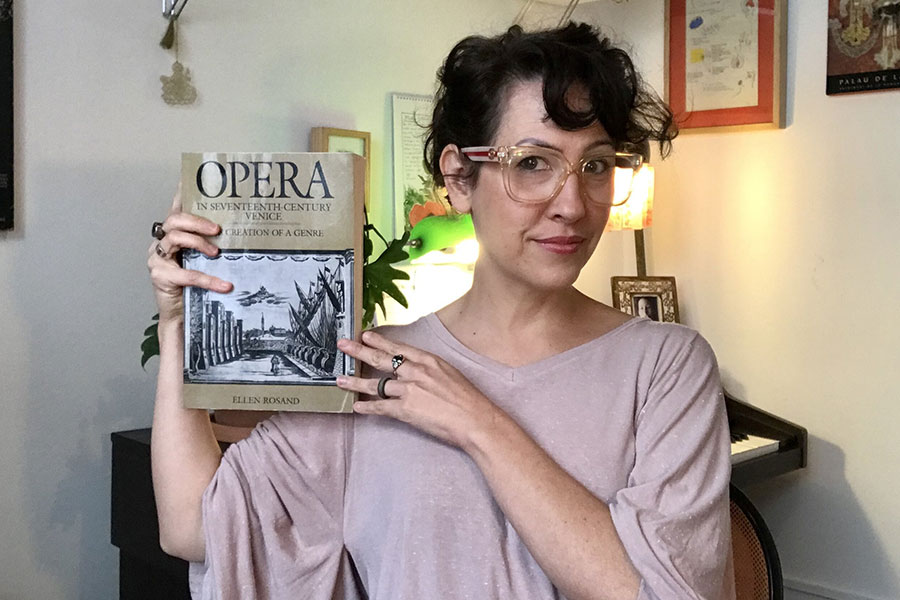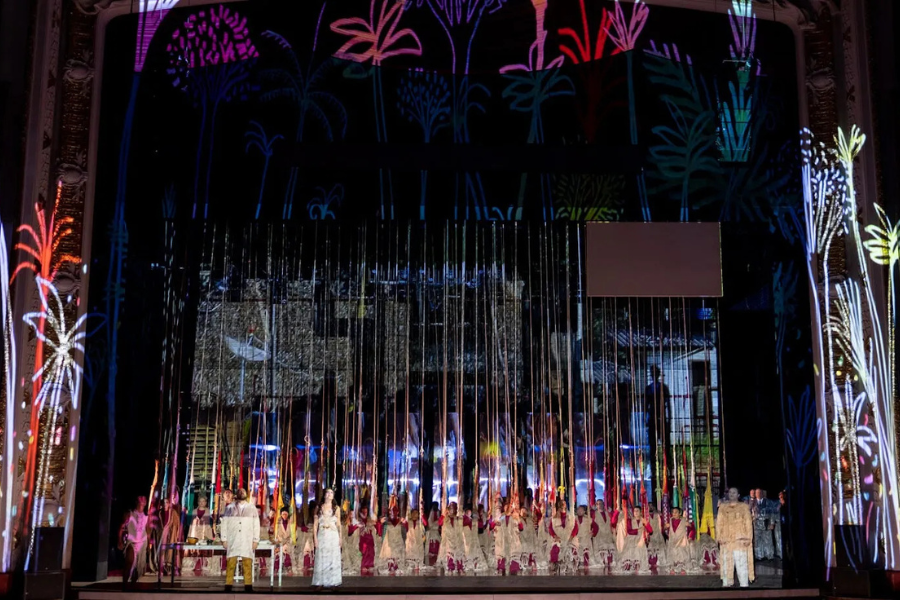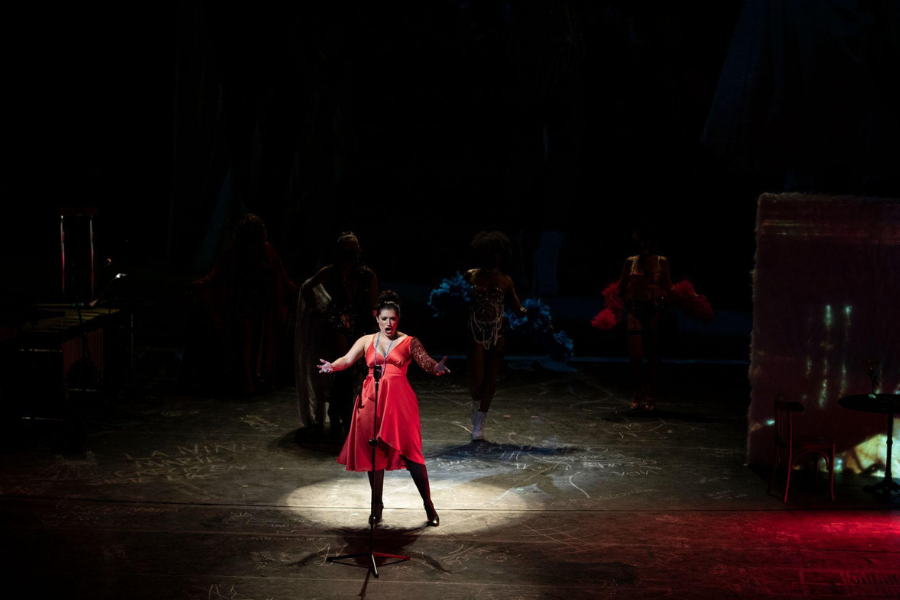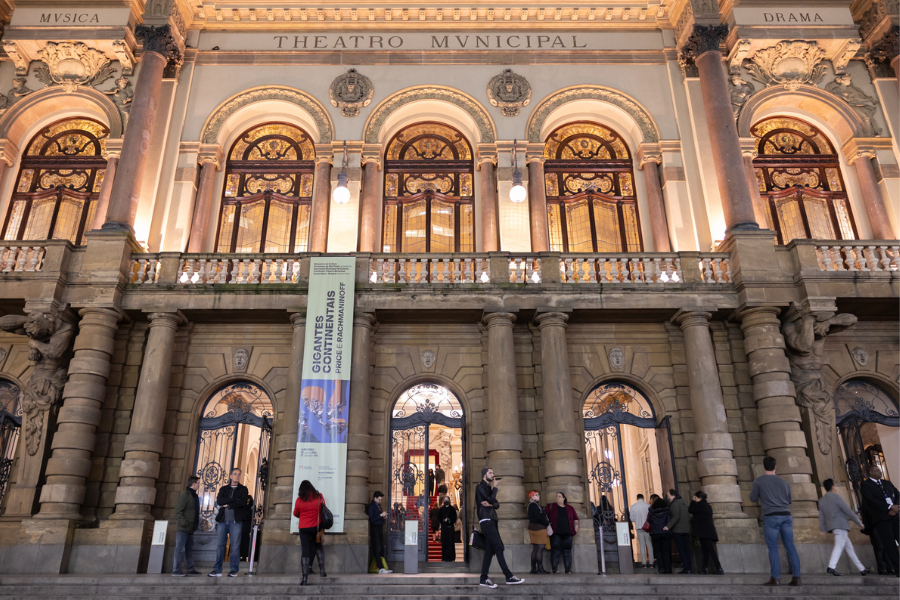El Theatro Municipal de São Paulo dictará curso online gratuito de introducción a la ópera

Presentado por la musicóloga Ligiana Costa, el curso aborda el surgimiento de la ópera a clasificaciones vocales, con la participación del Coro lírico, sumergiéndose en elementos de dramaturgia musical. Habrá seis clases, disponibles una vez por semana en YouTube en el Teatro Municipal.
¿Cómo se produce la ópera? ¿Cúal es la trama? ¿Qué formas musicales apoyan este género artístico? El Theatro Municipal de São Paulo, vinculado a la Secretaría Municipal de Cultura, es reconocido por sus temporadas líricas de excelencia. La Ópera más grande de Brasil permanece cerrada debido a la pandemia causada por el nuevo coronavirus, pero permanece activa con su extensa programación digital.
Se suma a la oferta digital del teatro a partir de este miércoles 22 de julio, el curso de Iniciación a la Ópera con la musicóloga Ligiana Costa, especializada en ópera barroca y presentadora del Podcast del Teatro Municipal.
Con un doctorado de las Universidades de Tours (Francia) y Milán (Italia), realiza un curso gratuito para presentar el género de teatro musical occidental más longevo diseñado para todos los públicos. Desde los oyentes habituales de este arte hasta los recién llegados al mundo del drama musical. Grabado por la propia presentadora desde su casa, el contenido ahora estará disponible en Internet y de forma gratuita, sin necesidad de registrarse. Sólo se debe acceder al YouTube de Theatro Municipal.
El curso se divide en tres módulos y en total habrá seis clases, que se ofrecerán los miércoles a las 19h. Uno a la semana. Cada episodio dura hasta 30 minutos. Desde el surgimiento de la ópera, pasando por la dramaturgia hasta las voces. «Prepara tus cafés y enciende el sonido», invita a Ligiana Costa.
En las dos primeras clases, un contenido teórico e histórico sobre el nacimiento de este arte. ¿Qué había allí antes de la ópera? ¿Cuáles fueron las búsquedas estéticas que culminaron en esta forma de teatro musical totalmente cantada? ¿Cómo la ópera, inicialmente una diversión en la corte, se vuelve pública y posible para un público que paga?
Ligiana se remonta al Renacimiento italiano, entre los siglos XIV y 16. Época de una Italia dividida y dirigida por familias y sus tribunales o consejos, y la música ya está en tránsito en un contexto profesional. Rescata la figura de los maestros de capilla, responsables de la música eclesiástica y los directores de cámara o corte, que se quedaron con la música de eventos y celebraciones, la música profana en general.
Para esto, es importante recordar los tres eventos principales que contribuyeron al nacimiento de la ópera: Dafne y Eurídice en Florencia; El Orfeo de Claudio Monteverdi en Mantua; y la aparición de la ópera pagada en Venecia.
En las clases tres y cuatro, el tema es dramaturgia y formas musicales. ¿Cómo funcionan los libretos? ¿Cómo funcionan las parcelas? ¿Cuáles son las formas musicales que apoyan la ópera musicalmente? Ligiana Costa dibuja un panorama para comprender cómo se forma la ópera y cómo evaluar una producción operística desde un punto de vista estructural.
Y en los últimos dos episodios del curso disponibles en YouTube en el Teatro Municipal, la presentadora habla sobre el arte de la excelencia y la precisión técnica que es el canto lírico. Aquí, ella trae una breve historia de la vocación lírica y las diversas clasificaciones vocales presentes en una ópera, que de una manera simple y conocida para el público en general se dividen en tenor, soprano, mezzo soprano, barítono, bajo y contralto. Y para una mejor comprensión de los estilos, el Coro lírico entra en escena para interpretar extractos de arias grabadas en la capilla por algunos de los miembros del cuerpo artístico del Teatro municipal que desde 1939 compone las asambleas de la casa.
Agenda de contenido – Introducción a la Ópera
22/07, lección 1: El nacimiento de la ópera – parte 1
29/07, lección 2: El nacimiento de la ópera – parte 2
05/08, lección 3: Dramaturgia musical – parte 1
12/08, lección 4: Dramaturgia musical – parte 2
26/08, lección 5: Voces líricas – parte 1
02/09, lección 6: Voces líricas – parte 2
+ Municipal en línea
Si bien el Teatro Municipal de São Paulo permanece cerrado según lo determine la ciudad para evitar la propagación del nuevo coronavirus, el territorio digital es la nueva etapa. Cuenta con actuaciones de cámara, cursos gratuitos, grabaciones en solitario en versiones reducidas para piano, videos completos de espectáculos y vive con profesionales del teatro. Todo esto con acceso gratuito y sin restricciones en las páginas del Teatro Municipal en Instagram, Facebook o YouTube.
Y el nuevo episodio del Podcast Theatro Municipal ya está en vivo. Para hablar sobre la formación musical, la presentadora Ligiana Costa habló con la Directora Érica Hindrikson, coordinadora de la Escuela Municipal de Música, la mezzosoprano Joyce Tripiciano, del Coro lírico y los músicos Renan Mendes (flauta) y Ugo Kageyama (violín), de Orquesta Sinfónica Municipal.





